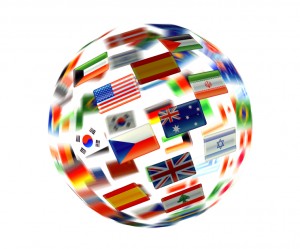 Russia Announces Anti-Crime Program
Russia Announces Anti-Crime Program
Russian Prime Minister Dmitry Medvedev outlined today the government’s program to fight crime and preserve public order over the coming seven years.
“The structure and dynamics of organized crime have imposed the necessity to improve measures to deal with the criminal situation in the country and guarantee public order,” said the Government text.
Medvedev has entrusted the Interior Ministry with execution of the comprehensive program, with participation by the Defense Ministry, federal Security and Anti-Drug authorities, and the penitentiary system.
The prime minister insisted that the quality and results of the struggle against criminal offenses and organized crime must be improved, and the people’s trust in the interior authorities be guaranteed.
President Vladimir Putin has insisted that the struggle against criminality and other threats to security in the cities be prioritized.
Government spokespeople claim that along with a reduction in crime rates, an increase in unsolved-crimes prevails, estimated at 45 percent.
President Putin drew attention to the more than 12 percent increase in crime in public places and has declared the struggle against all forms of terrorism as a priority.
Doubts Surface About Indian Rape Suspect’s Suicide
Coroners will perform an autopsy on the main suspect in a gang-rape case that continues to shake Indian society, amid serious objections to the official report claiming he committed suicide.
Officials at the high-security Tihar jail said that Ram Singh, 33, had hanged himself early Monday morning using a bedsheet.
However, his family and advocates doubt the report’s veracity and are demanding a thorough investigation.
“He was pleased with the way the prosecution process was developing. He did not commit suicide,” Counsel V. K. Anand told the IANS news agency.
Prison officials backed the report, but ordered an investigation.
Along with four of his accomplices, Singh faced 13 crimes, including murder – which carries a death sentence – attempted murder, gang rape, crimes against nature, destruction of evidence, kidnapping, injury to commit robbery and conspiracy to murder.
A sixth suspect, a minor, faces the same charges in a closed door session, and if found guilty can only be sentenced to a maximum of three years despite, according to press reports, being one of the most violent of the rapists.
According to the record, on December 16, the gang brutally raped a 23-year-old girl on a bus driven by Singh. They also seriously injured a young man who was accompanying the girl, when he tried to defend her.
The girl died 13 days later due to internal injuries caused by the gang when using a crowbar to rape her.
The fact sparked a wave of outrage across the country and a national debate about sexual assault, forcing authorities to strengthen security measures on the streets and consider legislation on the subject.
 Venezuela: Eight for President in April 14 Elections
Venezuela: Eight for President in April 14 Elections
Eight candidates will participate in Venezuela’s presidential race, with a vote scheduled for April 14. They are involved in a short campaign that will define the head of state for the period 2013-2019.
The process, triggered by the unfortunate death of Commander Hugo Chávez and in compliance with constitutional standards, led the National Electoral Council (CNE) to design a tight schedule, without excluding the steps and planned audits. In the first of the Procedures, the electoral governing body received the registration of candidates, in a relationship which highlights the current acting president, Nicolas Maduro, nominated by the United Socialist Party of Venezuela (PSUV) and 13 other political organizations.
Meanwhile the candidate of the opposition is Henrique Capriles, representing the so-called Democratic Unity Table (MUD), defeated by Chavez in the Oct. 7 election.
On that occasion, the representative of the right captured 44.3 percent of the vote compared to 55.07 percent for the leader of the Bolivarian Revolution.
In the elections of April 14 will also repeat as presidential candidates Reina Sequera (Labor Power Party) and Maria Bolivar (United for Peace and Freedom Democratic Party).
Last October, the first achieved 70 657 votes, Bolivar received 7 378.
Also in the race are the Christian pastor Eusebio Mendez, who will represent the organization New Vision for My Country, created in 2012, and Fredy Tabarquina for the Organized Youth of Venezuela Party (Young).
The list is completed by Gonzalo Contreras and Julio Mora, registered in representation of Cambio Pana and Udemo, respectively.
For the occasion, 18 903 143 Venezuelans are eligible to vote, taking into account the electoral roll used on October 7.
Of these, 100 495 can exercise their right to vote in embassies and consulates of the country, located in 88 states of the world.
The countries with the highest number of Venezuelans living abroad, eligible to vote, are United States (37 681), Spain (20 306), Colombia (6 060) and Canada (5 431).
Meanwhile, among the states, Zulia confirmed again its weight on the national agenda with 2 334 529 voters, equivalent to 12.4 percent of the national total, followed by Miranda with 10.4 percent and Carabobo with 8.0 percent.
The figures also show the participation of 141 000 soldiers of the Bolivarian National Armed Force (FANB) in the Republic Plan to cover the operation of 13 383 polling stations throughout the territory of Venezuela.
